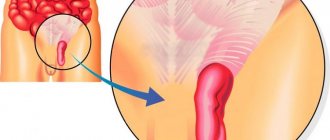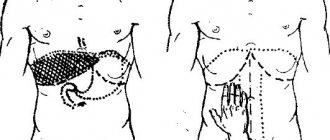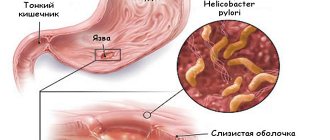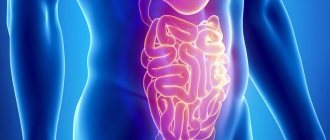The occurrence of hiccups is a reflexive response of the body to various situations. Typically, the appearance of spasms does not affect health, does not last long and soon disappears. But the appearance of a reflex reaction is sometimes associated with illness. The symptom is debilitating.
When a person hiccups, he is unable to take a normal breath, which leads to a constant lack of air. Spasmodic phenomena in the diaphragm sometimes cause pain. An uncomfortable state arises not only in the physical aspect. Constant hiccups have a depressing effect on the human psyche. Today medicine does not answer whether it is possible to die from hiccups.
Getting rid of an unpleasant phenomenon requires knowing how it happens and what provokes it. The task of the lungs is to provide the body with oxygen. When inhaling, the diaphragm contracts along with the muscles. At this moment, the organ becomes flat, and the chest rises and pumps air. The exhalation of carbon dioxide occurs due to muscle relaxation.
When food or saliva is swallowed, in order to prevent food debris from entering the trachea, the epiglottis rises in the throat, blocking the passage. When speaking, vocal cords are used to allow air to pass through and sound is produced.
Human vocal cords
The human central nervous system is responsible for the functioning of all internal organs, including respiratory function. The breathing apparatus operates automatically. The vagus nerve regulates the stretching or contraction of the lungs. It receives signals about increased levels of carbon dioxide in the blood, causing the respiratory apparatus to inhale and exhale. Under the influence of external factors, the vagus nerve malfunctions, and spontaneous signals are sent to the brain about the need to contract or relax the muscles. Accordingly, a reaction occurs: incorrect impulses are sent to the diaphragm and other muscles. A spasm occurs.
With hiccups, air does not enter the lungs because the epiglottis blocks the passage, and a sound occurs. The process is repeated over and over again. It is impossible to predict how long the spasm will last.
The percentage chance of death due to hiccups is difficult to measure. Gradually, the excitation of the vagus nerve passes, and breathing is restored.
Causes
Factors that provoke the occurrence of an unpleasant phenomenon are:
- Impaired functioning of the nervous system.
- Dysfunction of the internal organs of the digestive tract.
- Irritation of the walls of the larynx and pharynx.
- Inflammatory processes in the lungs and surrounding pleura.
- Mechanical effect on the vagus nerve, which leads to its compression.
- Failure of the cardiovascular system, change in pulse.
Based on this, the conclusion suggests itself that hiccups can be a symptom of a disease of the internal organs.
Medication treatment of hiccups in adults
To combat hiccups, medications are prescribed:
| No. | Drug name | Therapeutic actions |
| 1 | Spasmonet | Relieves muscle spasms and inflammation. |
| 2 | No-shpa | Eliminates muscle inflammation, relaxes internal muscles. |
| 3 | Omeprazole | Reduces the symptoms of hiccups, lowers the acidity of gastric juice. |
| 4 | Atropine | Eliminates muscle spasms and signs of hiccups. |
| 5 | Motilium | Improves the functioning of the stomach and intestines, relieves heartburn and cramps. |
| 6 | Cerucal | Blocks the nervous system, weakens spasms of internal muscles. |
| 7 | Pipolfen | Calms and relaxes the body. |
| 8 | Chlorpromazine | Eliminates nervous excitement, prevents hiccups and the urge to vomit. |
| 9 | Difenin | Relieves cramps, stomach cramps, hiccups. |
| 10 | Haloperidol | Soothes, eliminates frequent attacks of hiccups and nausea. |
| 11 | Aminazine | Inhibits the activity of the nervous system, removes spasms of internal organs. |
| 12 | Baclofen | Quickly relieves an attack of hiccups. |
It should be remembered that these medications can only be taken after the recommendation of a therapist.
Healthy man
If a person is healthy and there are no visible difficulties with internal organs, diaphragm spasm can develop due to the following conditions or factors:
- After meal. A large portion was eaten on the run, chewed quickly and little. The bad habit of drinking water or other liquids leads to disruption of the digestive system. The stomach stretches and can affect the vagus nerve. Carbonated drinks and other foods are to blame, the consumption of which leads to bloating and distension of the stomach.
- While eating. Talking while eating, swallowing large pieces and drinking leads to the accumulation of gases in the organ, and water prevents acid from digesting food normally. The stomach stretches, presses, and an unpleasant phenomenon occurs.
- Alcohol. Drinking alcoholic beverages inhibits the functioning of the brain, which is responsible for satiation, and at the same time the transmission of impulses to the digestive system is disrupted. As a result of drinking large doses of alcohol, eating a snack, or drinking alcohol on an empty stomach, the stomach swells and causes drunken hiccups.
- Severe hypothermia. When freezing, the bloodstream begins to intensively supply blood to vital organs, including the respiratory system.
- Smoking with coffee, which occurs when the stomach is empty, leads to contraction of the diaphragm and the occurrence of spasms. Also, an acute respiratory infection can cause hiccups.
- The unhealthy ecology of the surrounding world does not contribute to the normal course of physiological processes in the human body.
- Stress or fear often provokes spasms.
- Certain types of medications can cause disturbances in the functioning of the diaphragm.
- After laughter, especially long-lasting, there is a disruption in breathing and a reflex contraction occurs inside.
These reasons can only cause a temporary, sharp attack of an unpleasant condition. The duration does not exceed 20 minutes and passes either after belching or other actions that help move the food bolus further along the canal of the digestive system.
A way to get rid of hiccups at home: hold your breath for a few seconds, then relax.
Carrying out diagnostics
Diagnosis that identifies the causes of pathological attacks of hiccups includes a series of examinations and several types of tests.
Analyzes
- To determine serum electrolytes and trace element content;
- Detection of kidney damage by determining blood urea nitrogen and creatinine;
- Determination of blood sugar levels.
Research
- X-ray examination of the chest to detect damage to the vagus and phrenic nerves;
- ECG;
- Conducting an endoscopic examination of the throat, upper gastrointestinal tract and esophagus;
- X-ray revealing the presence of an obstacle with the obligatory intake of a barium mixture;
- Determination of acidity level.
MRI of the brain and computed tomography of the chest are also indicated.
If, as a result of a diagnostic examination, any diseases were identified, one of the symptoms of which is hiccups, treatment is prescribed, as a result of which this symptom disappears.
In children
In children, the occurrence of a reflex contraction is possible even while they are in the womb. While inside, the baby may swallow excess fluid from the amniotic fluid. This mainly occurs due to thumb sucking. Hiccups can signal the preparatory work of the nervous system and lungs for the future breathing process. Spasms in the diaphragm are caused by a reaction to the mood of the expectant mother.
In newborn children, the occurrence of a reflex phenomenon is associated with a nervous system that has not yet adapted. Nerve endings and the vagus nerve itself are sensitive to any irritating factor during this period. A child’s digestive system that is not fully mature does not produce enough enzymes, and spasms occur in the intestines.
In older children, hiccups may occur from laughing. Such an attack is harmless and passes quickly.
Hiccups last all day: diagnosis
If hiccups do not go away for a long time, several days or weeks, you should immediately make an appointment with a doctor. Because this may indicate serious problems in the body.
Hiccups all day long with nausea, abdominal pain, and vomiting are especially dangerous: they may be a sign of central nervous system disease.
It is necessary to make an appointment with a neurologist, gastroenterologist, or endocrinologist. The following diagnostic procedures are required to find out why a person hiccups:
- Take blood tests, including biochemical tests, for worms and sugar. A blood test will detect kidney disease and infections.
- Perform endoscopy of the windpipe and esophagus.
- Make an electrocardiogram of the heart.
- X-ray of the diaphragm, since prolonged hiccups may indicate problems with the vagus nerve.
- Computer or magnetic resonance imaging.
- Chest X-ray.
You may also be interested in: How to get tested correctly. Gastroscopy
Diseases
Various diseases, sometimes not the most harmless ones, lead to hiccups. The duration of spasmodic phenomena in the latter case is long, and it is quite difficult to get rid of it.
- Diseases of the cardiovascular system. Hiccups that occur after a stroke are considered a complication. When the blood vessels supplying the brain are damaged, the structures responsible for the functioning of internal organs are disrupted. This applies to both the work of the esophageal canal and the diaphragmatic organ. The appearance of a spasmodic phenomenon during and after a stroke occurs involuntarily and lasts quite a long time, and can further aggravate the patient’s condition. Such patients require consultation with a neurologist for proper treatment of the disease. Without treatment, death from hiccups is possible.
- Tumors. The appearance of malignant tumors in the brain, lungs, larynx, stomach, and other organs located in the abdominal region causes disruption of the normal functioning of body systems. With oncology, symptoms manifest themselves in different ways. Signs of the disease may be absent or cause unbearable pain. With cancer, a mass of toxins is formed in the body, poisoning the internal organs and leading to severe intoxication. The occurrence of neoplasms inside is proven by x-rays, tomography of the affected areas of the body, and biopsy.
X-ray of the chest
In a cancer patient, tumor formations are capable of causing mechanical compression of the vagus nerve located in the human brain. This leads to debilitating hiccups. It is possible that reflex contractions of the diaphragm may occur after surgery or chemotherapy.
- Intoxication syndrome. The appearance of infectious diseases in the human body, alcohol poisoning, chemical intoxication, damage to internal organs after chemotherapy, uncontrolled use of medications, kidney and liver dysfunction are sometimes the culprits of hiccups. These lesions release toxins into the human body, which leads to dysfunction of the central nervous system. In this case, detoxification therapy helps get rid of hiccups.
Hiccup definition
Convulsive repeated contractions of the diaphragm of a jerky nature, combined in a series, cause dysfunction of external respiration, manifested in short, often intense respiratory movements.
In other words, hiccups are a muscle spasm located at the border of the chest and abdominal cavities, which results in a sharp change in the volume of the chest. A sharp and involuntary inhalation is caused by stretching lungs.
The result is irritation of the nerve endings of the laryngeal mucosa and reflex closure of the glottis. The duration and frequency of attacks allows us to divide diaphragmatic spasms into two types.
Types of hiccups
The classification of Hiccup made it possible to distinguish two main types:
- Episodic or short-term. The duration of the attack is about a quarter of an hour.
- Pathological or long-term. The attack lasts from one hour to a day. Repeats daily for two or even more weeks.
In turn, pathological hiccups are divided into three more types:
- Central . It is a symptom of brain damage such as meningitis or encephalitis.
- Peripheral . It is provoked by pathology of the phrenic nerve.
- Toxic . A characteristic symptom of damage to nerve endings as a result of poisoning.
Hiccups - causes and treatment. How to get rid of hiccups
Examples from life
Medicine expresses its own opinion about the existence of hiccups and its purpose. Thus, a number of scientists believe that this phenomenon is necessary for the fetus inside the uterus. It promotes the movement of amniotic fluid through the respiratory system of the unborn child. After birth, there is no need for hiccups. A reflex contraction occurs under the influence of external factors (laughs, gets scared).
There are people around the world who live with hiccups for many years. The most famous person included in the Guinness Book of Records for having the longest hiccup is Charles Osborne. The illness lasted 68 years in a row, which is a record. The man died at the age of 96.
A case of prolonged hiccups has been reported in a man who lives in the UK. He has the longest and most persistent hiccups. The phenomenon has been going on for 22 years and is still present.
Prevention
Short-term hiccups can be prevented from causing an attack. To prevent contractions of the diaphragm, you need to follow a number of simple rules:
- Avoiding excessive drinking of alcoholic beverages and soda.
- Proper nutrition, adherence to eating and drinking regime, avoiding snacks on the run and fast dry meals.
- Keep your feet warm and try to avoid hypothermia.
- Try to lead a lifestyle that promotes strong immunity and good health, which does not allow the development of diseases that lead to hiccups.
Prolonged hiccups cannot be prevented. It is imperative to identify the cause of protracted attacks and eliminate the disease causing diaphragmatic contractions.
Do not delay your visit to the doctor if you feel unwell frequently. If you miss the moment, you can get a serious disease that is difficult to treat, or lead to the impossibility of a complete cure. Taking good care of your health will help preserve it for many years and improve your overall quality of life.










